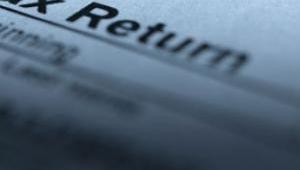04 April 2008
Revenue & Customs should impose greater penalties and make more use of publicity to reduce the £1bn a year in unpaid tax lost in the 'hidden economy', the National Audit Office has said.
An NAO report, HM Revenue & Customs: tackling the hidden economy, published on April 3, found that the department had achieved a £4.50 return for every £1 spent tackling the hidden economy in 2006/07. But it said the deterrent effect of prosecutions was reduced by less-than-maximum penalties in successful prosecutions and a lack of publicity for cases.
R&C spends £41m a year tackling the hidden economy, with the report using the term to include unregistered businesses, 'ghosts' ( people who work and pay no tax); 'moonlighters' (people who pay tax on some work but not all); and employers who facilitate ghosts and moonlighters.
Tim Burr, head of the NAO, said R&C had experimented with new ways of encouraging people into the formal economy. 'It could make better use of penalties and secure greater publicity for prosecutions to discourage people,' he said. 'With well over £1bn in unpaid tax each year, it is important that the department becomes more effective in tackling the problem.'
Public Accounts Committee chair Edward Leigh said: 'The department is active in tackling the hidden economy, but it is far from clear whether it is really making much ground.'
Advertising campaigns have led to 8,300 people registering to pay tax, bringing in £38m over three years. People have also been encouraged to come forward and pay tax owed using the offshore disclosure arrangements, bringing in an additional £400m in 2007.
The NAO recommended that advertising and publicity should also be used to raise awareness of the help provided to people who come forward voluntarily, such as the facility to pay tax owed in instalments, and to change attitudes towards the hidden economy, particularly in the home repair and maintenance sector.
An R&C spokeswoman said the department 'focuses its compliance work on the activities and the sectors which present the greatest risk, while making it as easy as possible for those who want to put their affairs on a proper footing to do so. This strategy is achieving real results.'
PFapr2008


















